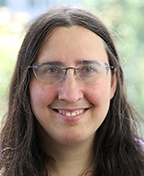UC Riverside
Thomas Girke is a Professor of Bioinformatics at the Institute for Integrative Genome Biology at the University of California, Riverside (UCR). He holds positions as Director of the High-Performance Computing Center (HPCC) and Director of the Graduate Program in Genetics, Genomics and Bioinformatics (GGB). His research interests are in the areas of cheminformatics and bioinformatics, with a focus on both discovery and methodology development.
Boston University
Stefano Monti, PhD is a Professor of Medicine, Biostatistics, and Bioinformatics at Boston University. His research integrates systems biology, machine learning, and bioinformatics to investigate the molecular drivers of human disease through the generation and analysis of high-throughput multi-omics data, with the goals of advancing prevention and care. Areas of research include the study of the biological factors contributing to healthy aging and extreme longevity, and the study of age-associated mechanisms of tumor initiation and progression.
Institute for Systems Biology
Noa Rappaport, PhD is a Research Associate Professor at the Buck Institute for Research on Aging, Chief Data Officer at Phenome Health, and Principal Scientist at the Institute for Systems Biology. She leads research in computational biology and multi-omic analysis, using and developing methods to study complex biological systems exploring aging biology, Alzheimer’s disease, and metabolic health through multi-omic data integration.
TGen
Dr. Nicholas J. Schork is a Distinguished Professor at The Translational Genomics Research Institute (TGen), a part of the City of Hope (COH) National Medical Center, and co-director of the Clinical Genomics and Therapeutics division. He also holds appointments at COH, UCSD, Scripps Research, and SJHC. His interests are in quantitative aspects of human biomedical research, including systems biology and the design and analysis of precision-medicine era clinical trials.







